Boston’s hotel market came up strong in 2022, exceeding expectations. Despite anticipated recessionary impacts in 2023, a full recovery is on the horizon for this market.
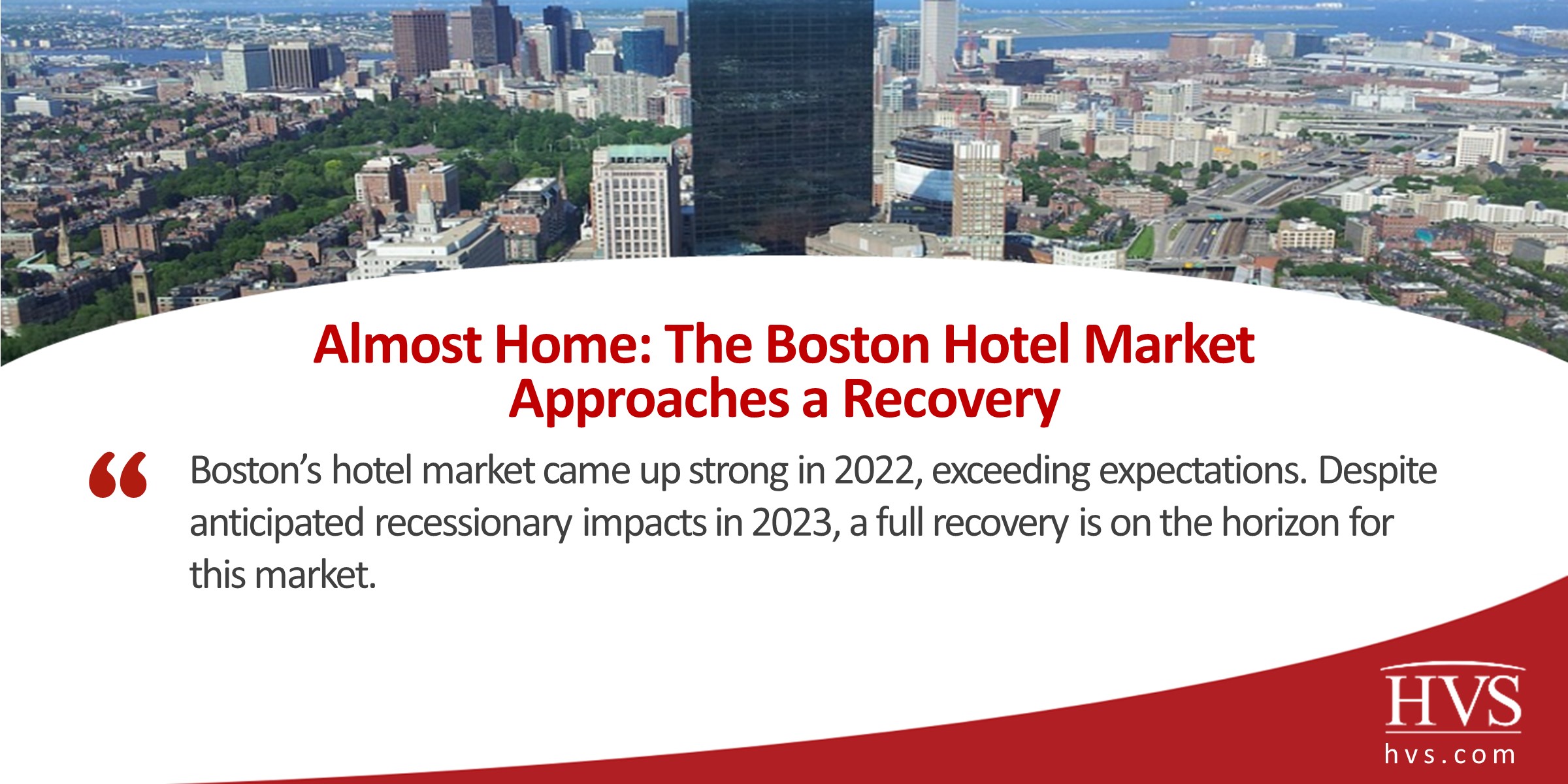
We have written thousands of articles about all aspects of hospitality, including valuations, investing, lending, operations, asset management, and much more.
Boston’s hotel market came up strong in 2022, exceeding expectations. Despite anticipated recessionary impacts in 2023, a full recovery is on the horizon for this market.
Saudi Arabia is entering an entirely new tourism landscape with its Saudi Vision 2030 initiatives. With a strong economic outlook, a diversification of its economy, and significant governmental support, the hospitality and tourism markets across the Kingdom are expected to thrive over the next decade. In this article, we discuss the most important tourism indicators in the Kingdom.
Is it time for the Indian hotel industry to pursue a well-defined localization strategy, given changing consumer preferences and market dynamics? Continue reading to learn more.
Despite increased efforts, the Indian hotel industry's sustainability initiatives are still limited to hotel operations. Hotels are often criticized for their conspicuous consumption and a concerted effort to reduce consumption and waste across the board is now needed. Read on to know more.
As the South American hotel industry is recovering after the pandemic hit the continent hard, Richard Katzman (Managing Director, HVS Mexico City) and Fernanda L'Hopital (Senior Project Manager, HVS Buenos Aires) gave an interview to TOPHOTELNEWS about the current status of development prospects across this continent.
HVS Dubai consultants attended the 2022 Future Hospitality Summit, held September 19-21 in Dubai, which brought together nearly 1,100 hotel owners, investors, operators, brand representatives, and consultants. This article summarizes key takeaways from the presentations and panel discussions held at the conference.
Following the devastating effects of the COVID-19 pandemic on Indianapolis’s hospitality and tourism industries, a recovery is well underway, led by leisure demand generated by the city’s sporting and entertainment events and the return of meeting and group demand.
While New York City has been the focus of discussion around the state’s pandemic recovery, the Finger Lakes, the Adirondacks, and the Catskills/Hudson Valley markets have offered some of the biggest surprises. This article looks at how these three resort markets have fared throughout the pandemic, as well as the factors affecting their recent performance.
The halls of the JW Marriott Desert Ridge were buzzing this week as thousands descended upon the Phoenix resort for this week’s Lodging Conference. If you couldn’t make it to the event, here’s a quick recap of what you missed.
The Bronx’s distance from Manhattan and limited attractions have historically lacked appeal to people relocating to or within New York City. However, the availability of land, particularly along waterfront areas, and lower rent pricing have become catalysts for development over the last several years, bolstered by the popularity of the hybrid work model resulting from the COVID-19 pandemic. Continued gradual growth, coupled with increasing desirability, has created a resurgence for the Bronx.
We have written thousands of articles about all aspects of hospitality, including valuations, investing, lending, operations, asset management, and much more.

Boston’s hotel market came up strong in 2022, exceeding expectations. Despite anticipated recessionary impacts in 2023, a full recovery is on the horizon for this market.
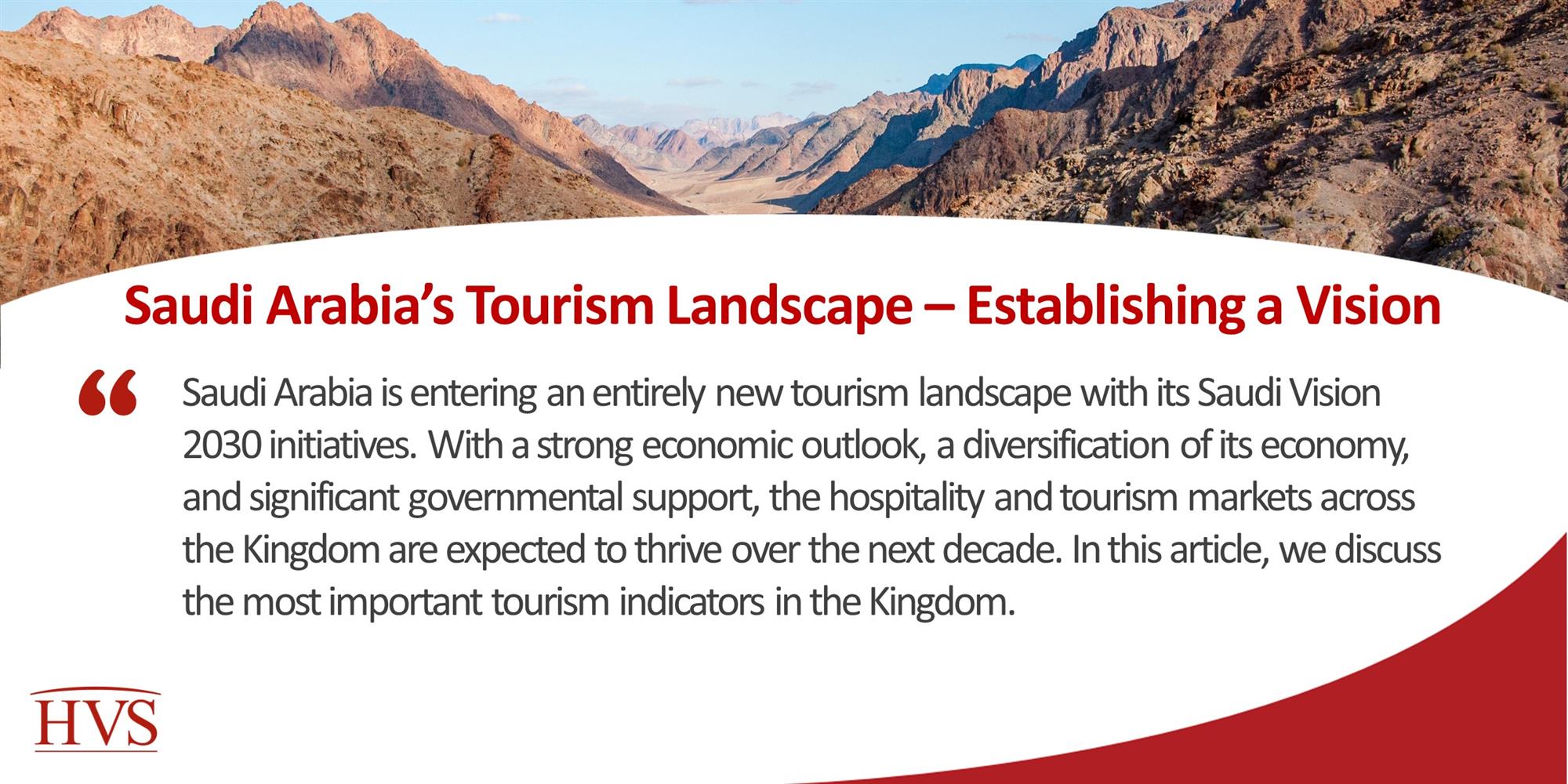
Saudi Arabia is entering an entirely new tourism landscape with its Saudi Vision 2030 initiatives. With a strong economic outlook, a diversification of its economy, and significant governmental support, the hospitality and tourism markets across the Kingdom are expected to thrive over the next decade. In this article, we discuss the most important tourism indicators in the Kingdom.
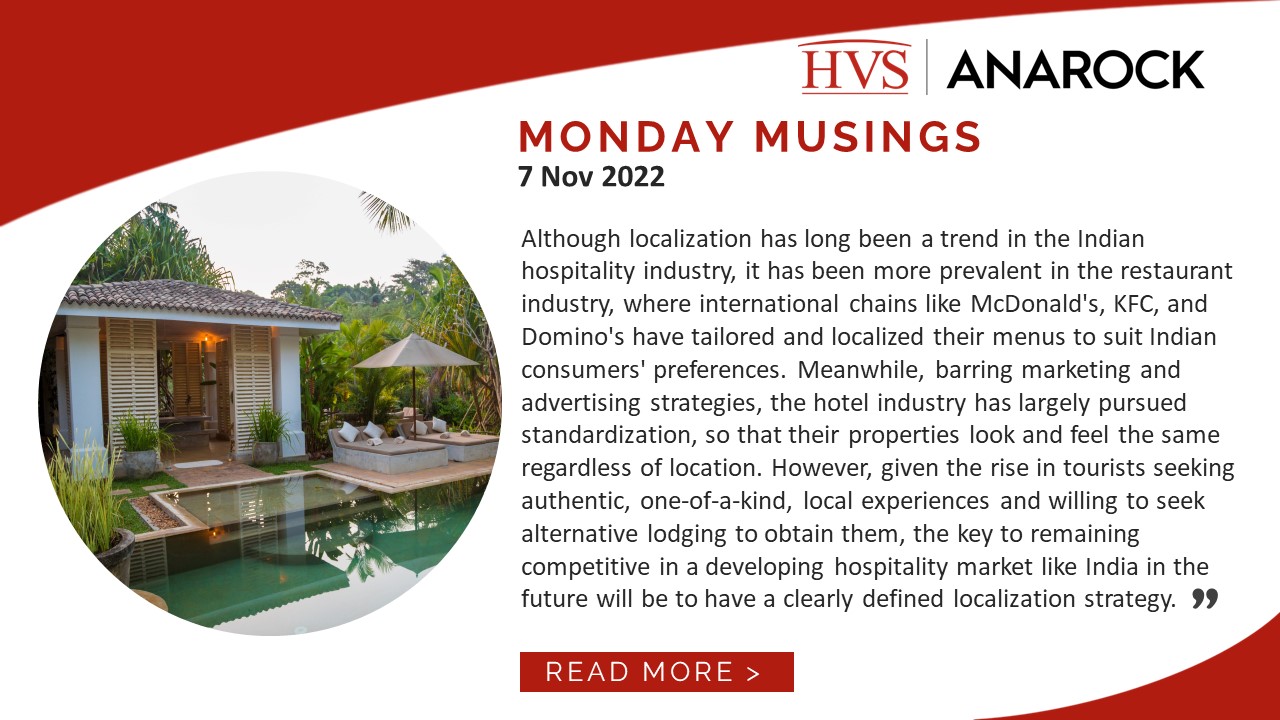
Is it time for the Indian hotel industry to pursue a well-defined localization strategy, given changing consumer preferences and market dynamics? Continue reading to learn more.
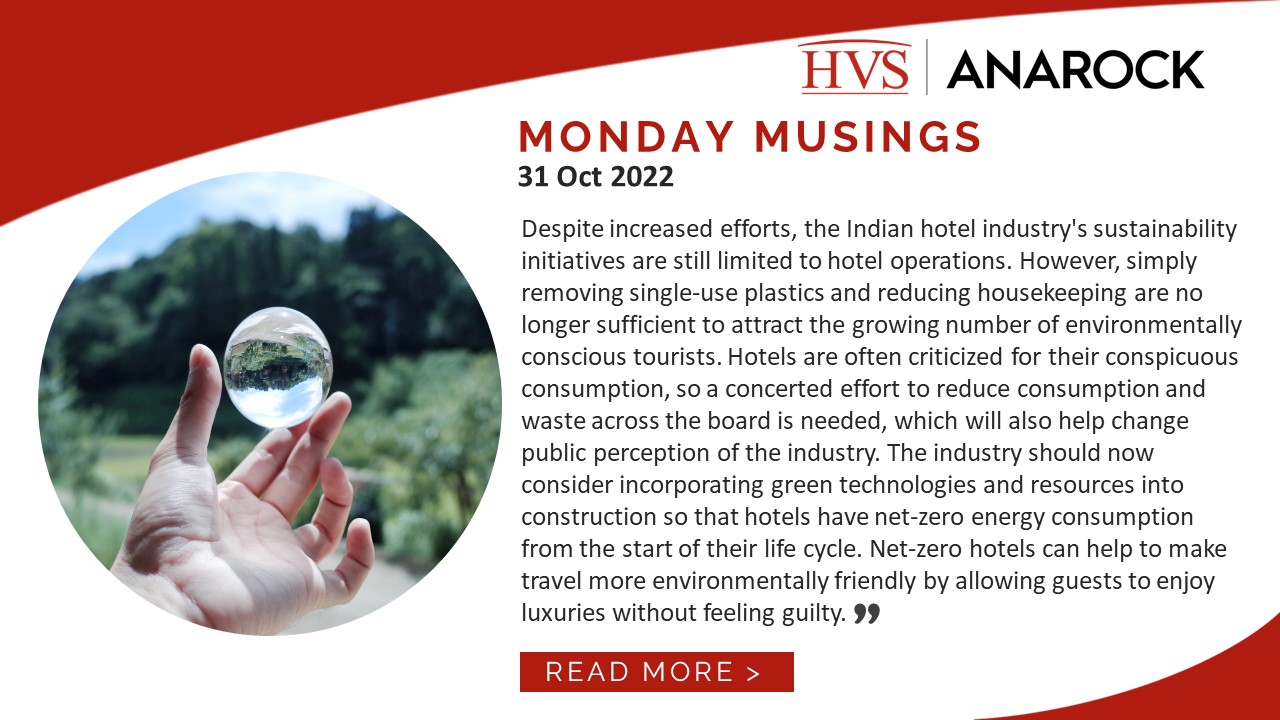
Despite increased efforts, the Indian hotel industry's sustainability initiatives are still limited to hotel operations. Hotels are often criticized for their conspicuous consumption and a concerted effort to reduce consumption and waste across the board is now needed. Read on to know more.

As the South American hotel industry is recovering after the pandemic hit the continent hard, Richard Katzman (Managing Director, HVS Mexico City) and Fernanda L'Hopital (Senior Project Manager, HVS Buenos Aires) gave an interview to TOPHOTELNEWS about the current status of development prospects across this continent.

HVS Dubai consultants attended the 2022 Future Hospitality Summit, held September 19-21 in Dubai, which brought together nearly 1,100 hotel owners, investors, operators, brand representatives, and consultants. This article summarizes key takeaways from the presentations and panel discussions held at the conference.
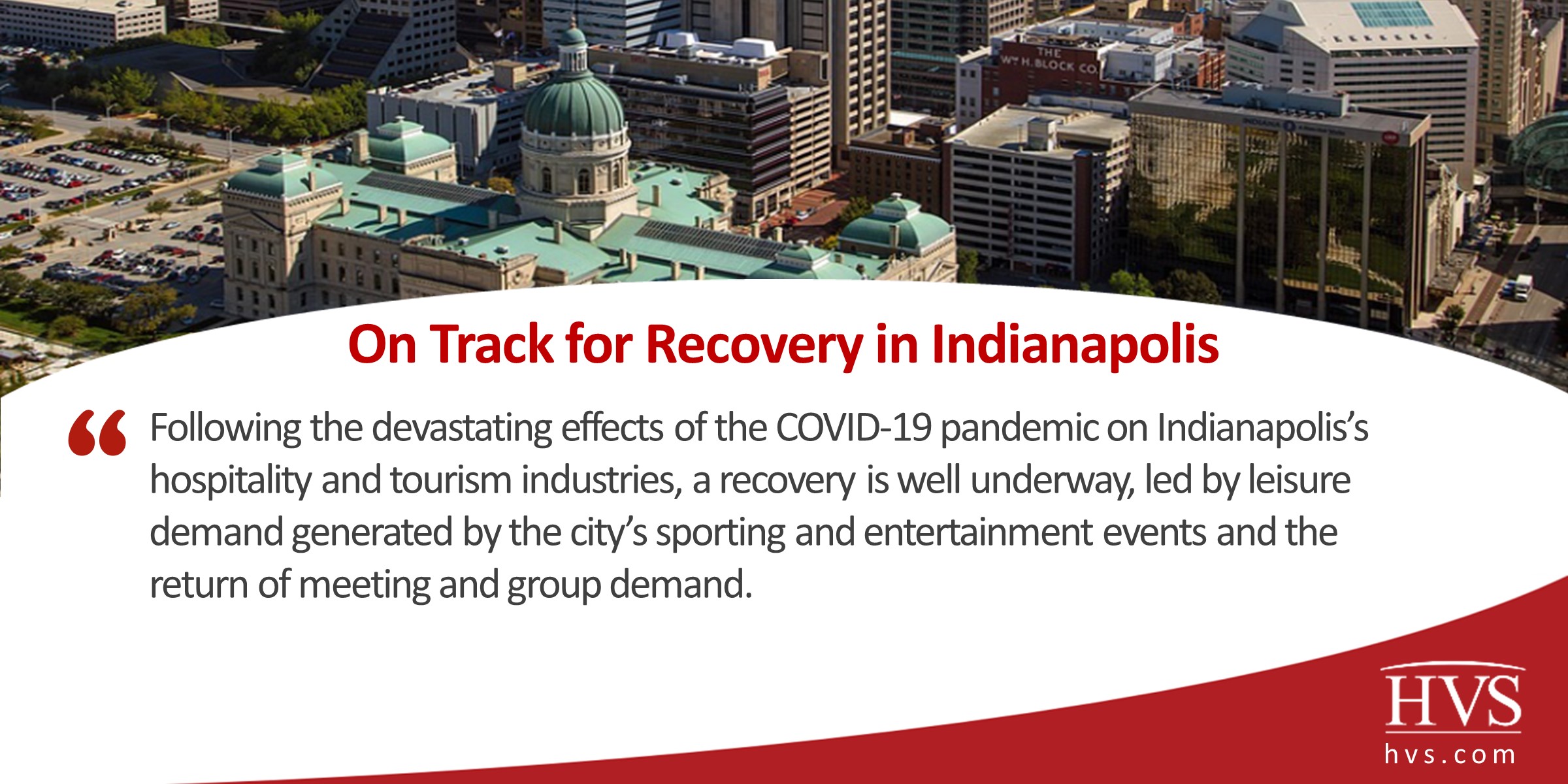
Following the devastating effects of the COVID-19 pandemic on Indianapolis’s hospitality and tourism industries, a recovery is well underway, led by leisure demand generated by the city’s sporting and entertainment events and the return of meeting and group demand.
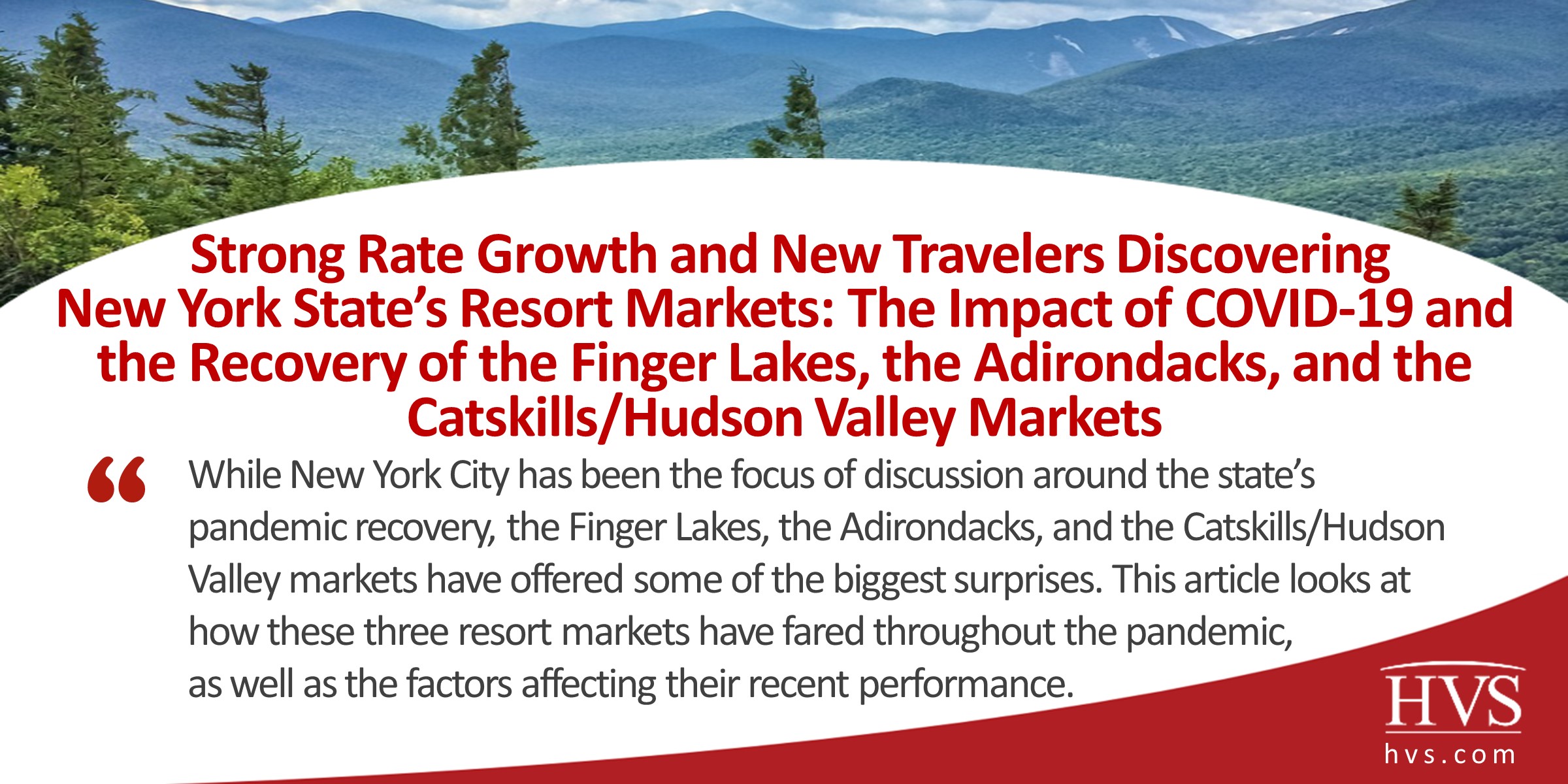
While New York City has been the focus of discussion around the state’s pandemic recovery, the Finger Lakes, the Adirondacks, and the Catskills/Hudson Valley markets have offered some of the biggest surprises. This article looks at how these three resort markets have fared throughout the pandemic, as well as the factors affecting their recent performance.
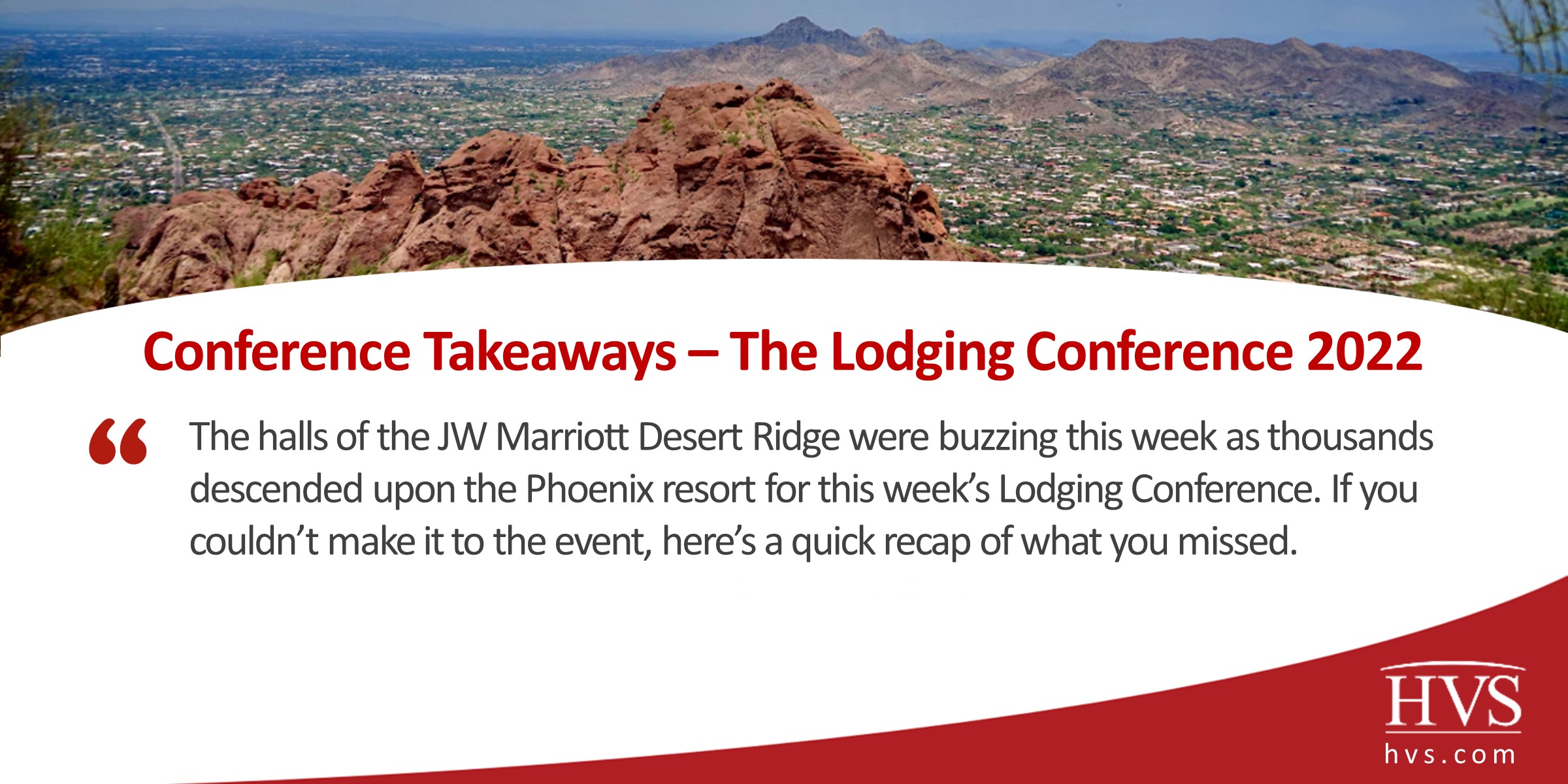
The halls of the JW Marriott Desert Ridge were buzzing this week as thousands descended upon the Phoenix resort for this week’s Lodging Conference. If you couldn’t make it to the event, here’s a quick recap of what you missed.
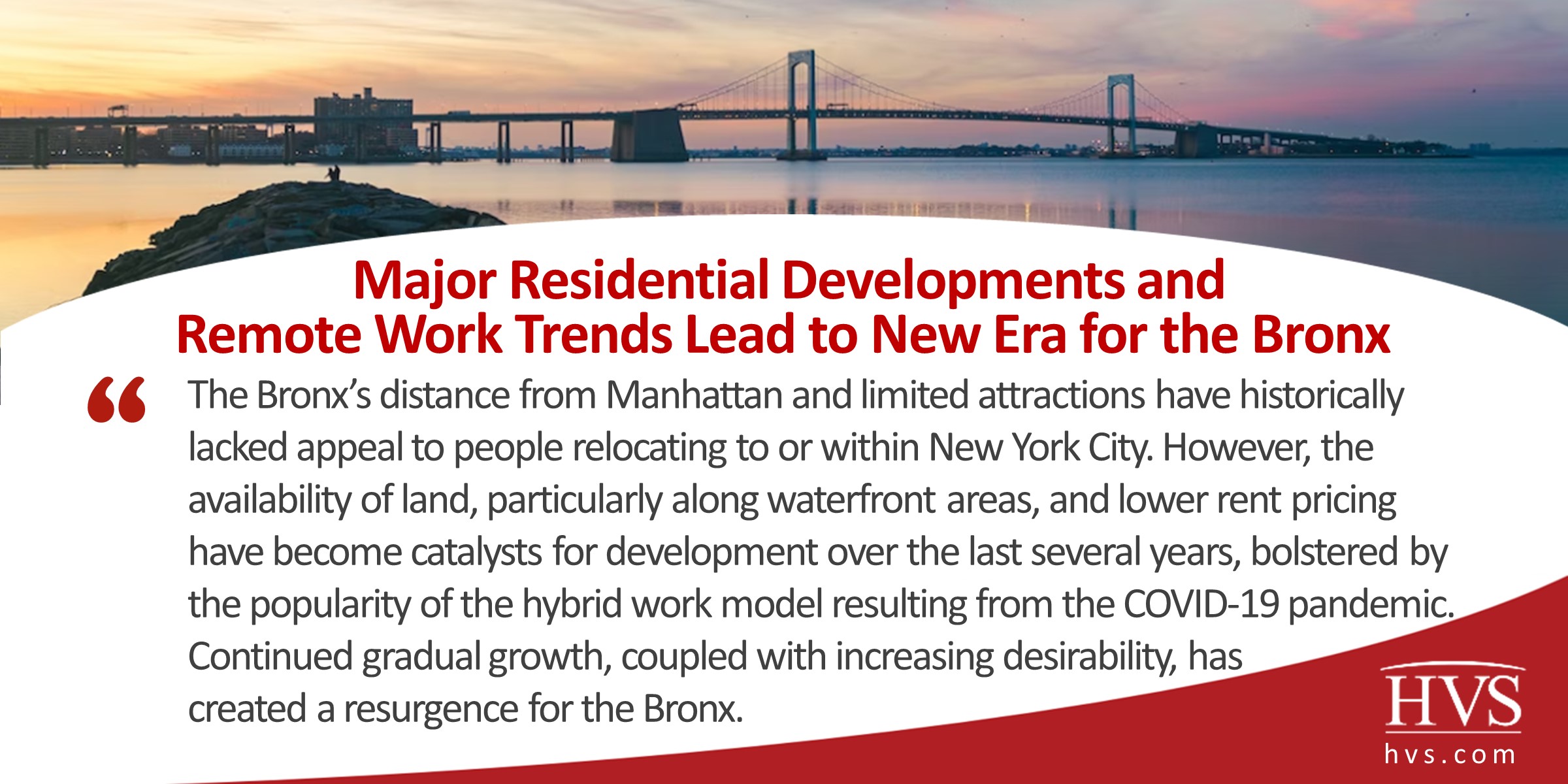
The Bronx’s distance from Manhattan and limited attractions have historically lacked appeal to people relocating to or within New York City. However, the availability of land, particularly along waterfront areas, and lower rent pricing have become catalysts for development over the last several years, bolstered by the popularity of the hybrid work model resulting from the COVID-19 pandemic. Continued gradual growth, coupled with increasing desirability, has created a resurgence for the Bronx.

Robust demand in urban centers continues to drive Canadian hotel values despite high interest rate environment.